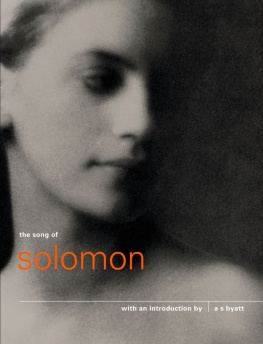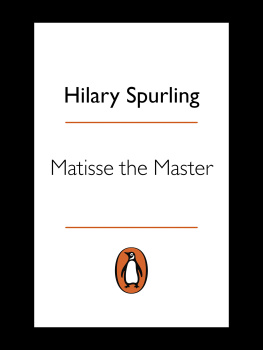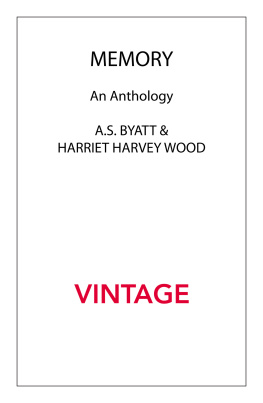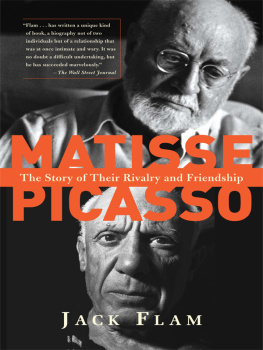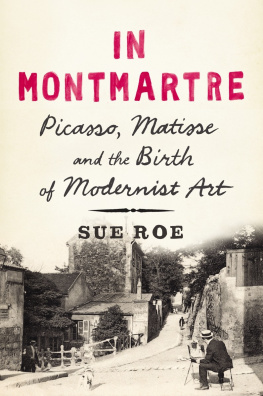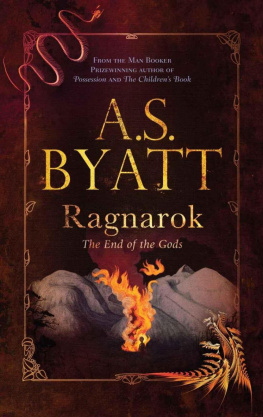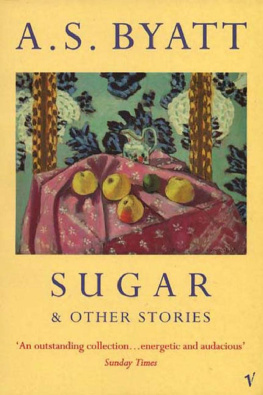Antonia Susan Byatt - The Matisse Stories
Here you can read online Antonia Susan Byatt - The Matisse Stories full text of the book (entire story) in english for free. Download pdf and epub, get meaning, cover and reviews about this ebook. year: 2009, publisher: Vintage International, genre: Art. Description of the work, (preface) as well as reviews are available. Best literature library LitArk.com created for fans of good reading and offers a wide selection of genres:
Romance novel
Science fiction
Adventure
Detective
Science
History
Home and family
Prose
Art
Politics
Computer
Non-fiction
Religion
Business
Children
Humor
Choose a favorite category and find really read worthwhile books. Enjoy immersion in the world of imagination, feel the emotions of the characters or learn something new for yourself, make an fascinating discovery.

- Book:The Matisse Stories
- Author:
- Publisher:Vintage International
- Genre:
- Year:2009
- Rating:4 / 5
- Favourites:Add to favourites
- Your mark:
- 80
- 1
- 2
- 3
- 4
- 5
The Matisse Stories: summary, description and annotation
We offer to read an annotation, description, summary or preface (depends on what the author of the book "The Matisse Stories" wrote himself). If you haven't found the necessary information about the book — write in the comments, we will try to find it.
The Matisse Stories — read online for free the complete book (whole text) full work
Below is the text of the book, divided by pages. System saving the place of the last page read, allows you to conveniently read the book "The Matisse Stories" online for free, without having to search again every time where you left off. Put a bookmark, and you can go to the page where you finished reading at any time.
Font size:
Interval:
Bookmark:
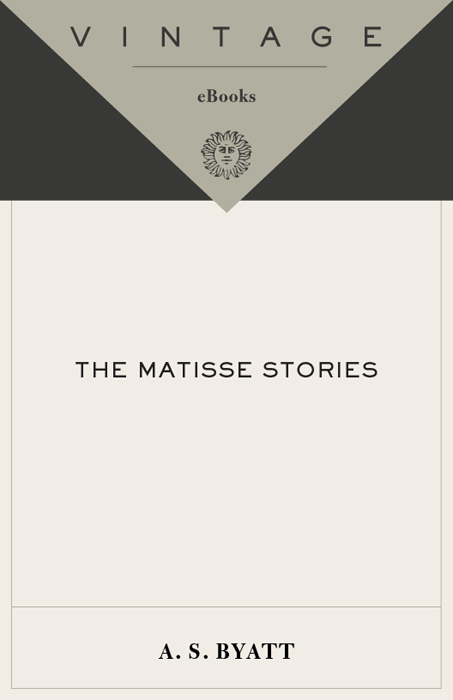
Acclaim for A. S. BYATTS
The Matisse Stories
Brilliant. Byatts fiction, like Matisses art, pays close attention to colors and contours of surfaces, then probes beneath them to reveal further surprises.
Newsday
Wonderful. Like the best of Matisses works, these stories are luminous and illuminating.
Miami Herald
A. S. Byatts three-tale sequence hits the imaginations retina with all the vibrant splatter of an exploding paintbox. Everywhere, scenes sizzle with chromatic intensity.
The Sunday Times (London)
A writer of dazzling inventiveness.
Time
These stories are multi-layered and thought-provoking. Byatt has achieved the result she wanteda book that is every bit as rich and sensual as a painting by Matisse.
San Diego Union-Tribune
Exquisite triptych. The Matisse Stories is richly drawn and touches upon things that matter to people.
People
Byatt exuberantly plays with the language of color, using it to establish a mood and, like a painter, to draw the reader into a carefully arranged scene.
L.A. Reader
FICTION
The Shadow of the Sun
The Game The Virgin in the Garden
Still Life
Sugar and Other Stories
Possession: A Romance
Angels and Insects
The Matisse Stories
Babel Tower
The Djinn in the Nightingales Eye
Elementals
The Biographers Tale
CRITICISM
Degrees of Freedom:
The Novels of Iris Murdoch
Unruly Times:
Wordsworth and Coleridge in Their Time
Passions of the Mind:
Selected Writings
Imagining Characters (with Igns Sodr)
The Matisse Stories
A. S. Byatt is the author of the novels Possession (winner of the Booker Prize in 1990), The Game, and the sequence The Virgin in the Garden, Still Life, and Babel Tower. She has also written two novellas, published together as Angels and Insects, and four collections of shorter works, including The Matisse Stories and The Djinn in the Nightingales Eye. Educated at Cambridge, she was a senior lecturer in English at University College, London, before becoming a full-time writer in 1983. A distinguished critic as well as a novelist, she lives in London.
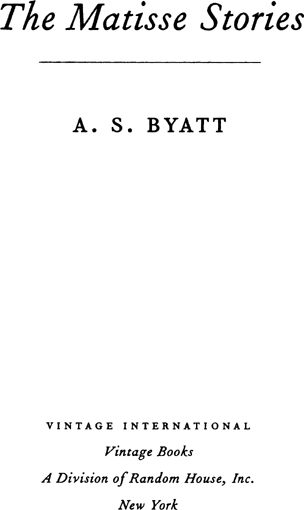
For Peter
Who taught me to look at things slowly.
With love.

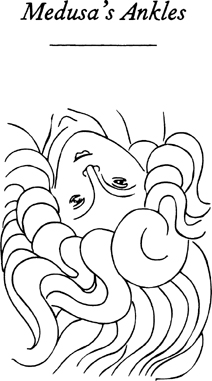
Lachevelure, 1931-32
She had walked in one day because she had seen the Rosy Nude through the plate glass. That was odd, she thought, to have that lavish and complex creature stretched voluptuously above the coat rack, where one might have expected the stare, silver and supercilious or jetty and frenzied, of the model girl. They were all girls now, not women. The rosy nude was pure flat colour, but suggested mass. She had huge haunches and a monumental knee, lazily propped high. She had round breasts, contemplations of the circle, reflections on flesh and its fall.
She had asked cautiously for a cut and blow-dry. He had done her himself, the owner, Lucian of Lucians, slender and soft-moving, resembling a balletic Hamlet with full white sleeves and tight black trousers. The first few times she came it was the trousers she remembered, better than his face, which she saw only in the mirror behind her own, and which she felt a middle-aged disinclination to study. A womans relation with her hairdresser is anatomically odd. Her face meets his belt, his haunches skim her breathing, his face is far away, high and behind. His face had a closed and monkish look, rather fine, she thought, under soft, straight, dark hair, bright with health, not with added fats, or so it seemed.
I like your Matisse, she said, the first time.
He looked blank.
The pink nude. I love her.
Oh, that. I saw it in a shop. I thought it went exactly with the colour-scheme I was planning.
Their eyes met in the mirror.
I thought she was wonderful, he said. So calm, so damn sure of herself, such a lovely colour, I do think, dont you? I fell for her, absolutely. I saw her in this shop in the Charing Cross Road and I went home, and said to my wife, I might think of placing her in the salon, and she thought nothing to it, but the next day I went back and just got her. She gives the salon a bit of class. I like things to have class.
In those days the salon was like the interior of a rosy cloud, all pinks and creams, with creamy muslin curtains here and there, and ivory brushes and combs, and here and therethe mirror-frames, the little trolliesa kind of sky blue, a dark sky blue, the colour of the couch or bed on which the rosy nude spread herself. Music playedSusannah hated piped musicbut this music was tinkling and tripping and dropping, quiet seraglio music, like sherbet. He gave her coffee in pink cups, with a pink and white wafer biscuit in the saucer. He soothed her middle-aged hair into a cunningly blown and natural windswept sweep, with escaping strands and tendrils, softening brow and chin. She remembered the hairdressing shop of her wartime childhood, with its boarded wooden cubicles, its advertisements for Amami shampoo, depicting ladies with blonde pageboys and red lips, in the forties bow which was wider than the thirties rosebud. Amami, she had always supposed, rhymed with smarmy and was somehow related to it. When she became a linguist, and could decline the verb to love in several languages, she saw suddenly one day that Amami was an erotic invitation, or command. Amami, love me, the blondes said, under their impeccably massed rolls of hair. Her mother had gone draggled under the chipped dome of the hairdryer, bristling with metal rollers, bobby-pins and pipe-cleaners. And had come out under a rigidly bouncy set, like a mountain of wax fruit, that made her seem artificial and embarrassing, drawing attention somehow to the unnatural whiteness of her false teeth.
They had seemed like some kind of electrically shocking initiation into womanhood, those clamped domes descending and engulfing. She remembered her own first set, the heat and buzzing, and afterwards a slight torn tenderness of the scalp, a slight tindery dryness to the hair.
In the sixties and seventies she had kept a natural look, had grown her hair long and straight and heavy, a chestnut-glossy curtain, had avoided places like this. And in the years of her avoidance, the cubicles had gone, everything was open and shared and above board, blow-dryers had largely replaced the hoods, plastic spikes the bristles.
She had had to come back because her hair began to grow old. The ends split, the weight of it broke, a kind of frizzed fur replaced the gloss. Lucian said that curls and wavesfollowing the lines of the new unevennesswould dissimulate, would render natural-looking, that was, young, what was indeed natural, the death of the cells. Short and bouncy was best, Lucian said, and proved it, tactfully. He stood above her with his fine hands cupped lightly round her new bubbles and wisps, like the hands of a priest round a Grail. She looked, quickly, quickly, it was better than before, thanked him and averted her eyes.
Font size:
Interval:
Bookmark:
Similar books «The Matisse Stories»
Look at similar books to The Matisse Stories. We have selected literature similar in name and meaning in the hope of providing readers with more options to find new, interesting, not yet read works.
Discussion, reviews of the book The Matisse Stories and just readers' own opinions. Leave your comments, write what you think about the work, its meaning or the main characters. Specify what exactly you liked and what you didn't like, and why you think so.

